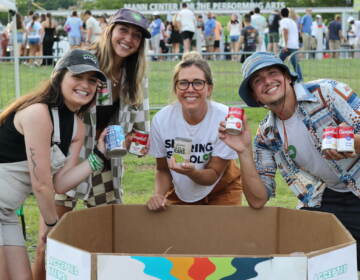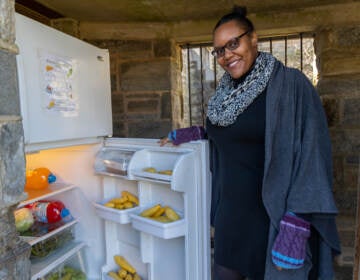Philly’s immigrant-led orgs step up to fight COVID hunger with comfort food
Los Taquitos de Puebla III and PASSi Kitchen Xpress each provide familiar food to the immigrant communities they serve during the coronavirus pandemic.
Listen 4:16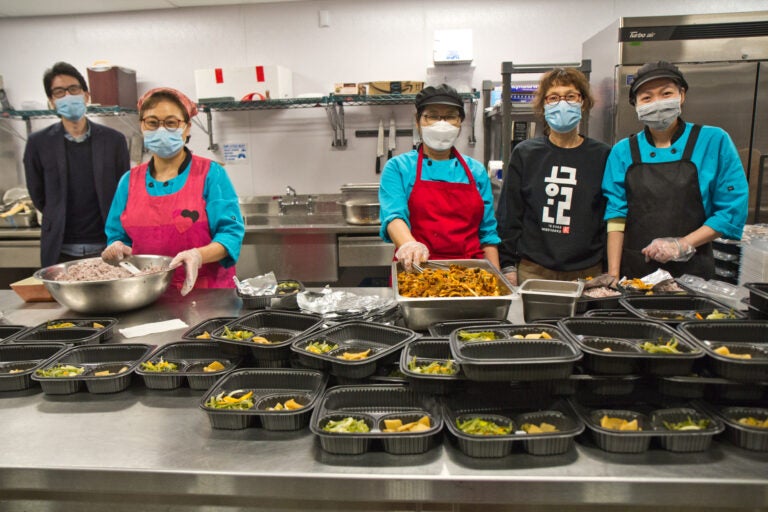
From left, PASSi managing director Ken Yang, chef Jeom Sun Cho, chef Okseo Okyeon, director Insook Seol, and chef Nguyet Tran. (Kimberly Paynter/WHYY)
Are you on the front lines of the coronavirus? Help us report on the pandemic.
Business has been slow in Ignacio Marcelo Flores’ restaurant, Los Taquitos de Puebla III, near the Italian Market in Philadelphia. “There’s few, very few,” he said, when asked about takeout orders.
Although his bottom line is hurting and he’s had to lay off employees, Flores still jumped at the chance to help others. On a recent afternoon, he scooped rice out of a brown sack and into clear plastic bags. Nearby, other workers from local Mexican restaurants met at his shop to fill at least 465 donation bags with culturally-specific pantry staples.
“Many in the community like spiciness, so we have jalapeños” said David Piña, owner of the restaurant Tamalex, as he listed the other offerings, including beans, stock, pureed tomatoes, and cereal “for the kids.”
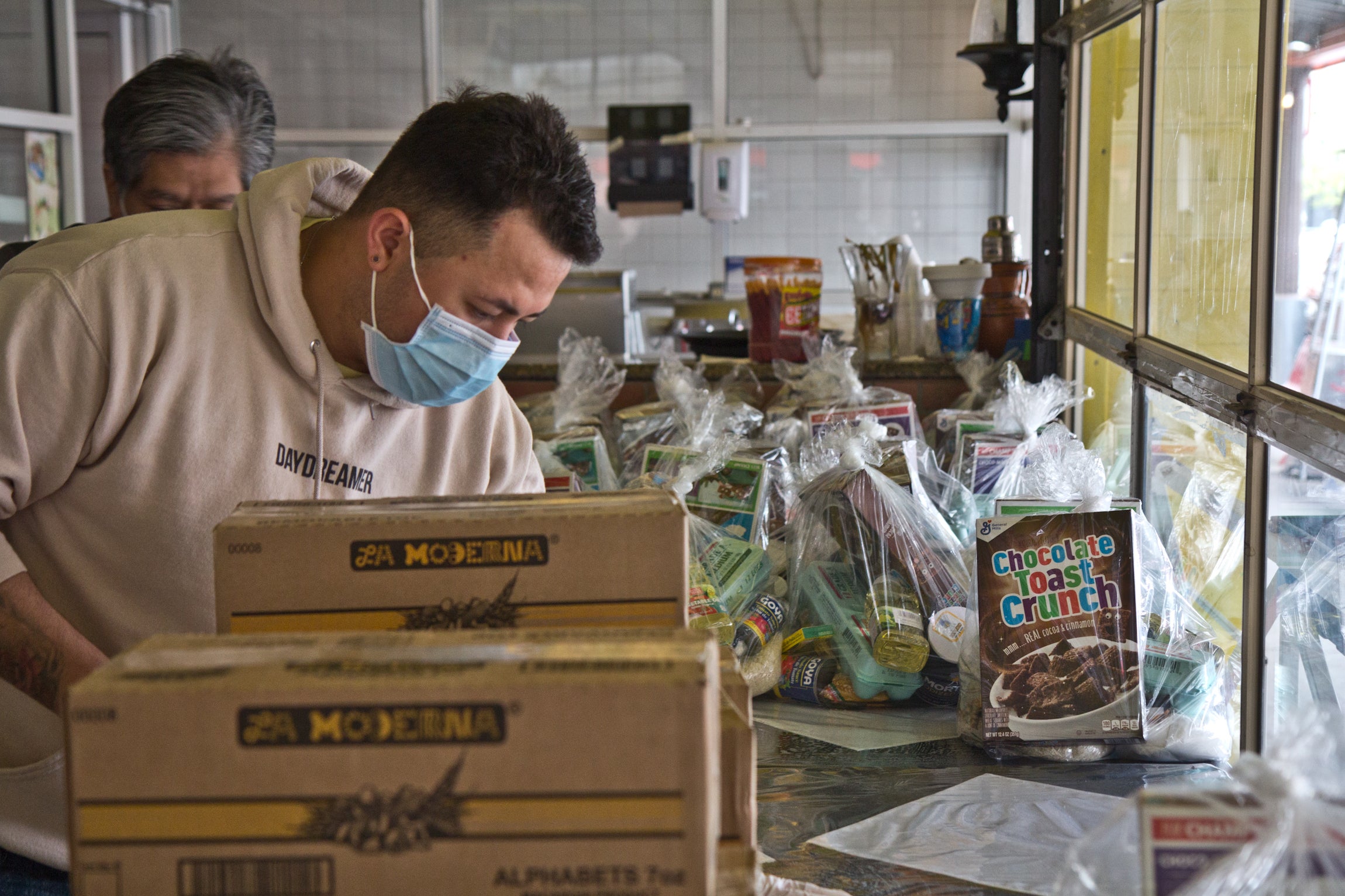
The City of Philadelphia is giving away free food to those in need during the coronavirus pandemic, but standard food pantry fare isn’t comfort food for all. So, local immigrant-led organizations and businesses are branching out with efforts like this to give away the food their communities crave.
Philatinos Radio brought together several individuals and about a dozen local Mexican-owned businesses to make the gathering at Flores’ restaurant happen — some donating money to buy the food, others their time.
“The Mexican, the Latino community, we want to help each other,” said Philatinos coordinator Édgar Ramírez. Most people he knows in the community work in restaurants, some in construction — industries that have suffered during the shutdown. Ramírez said he fears many will be the last to return to work.
They also may not qualify for government support. Federal relief programs for individuals and small businesses are not open to undocumented immigrants, and those who don’t speak English may have trouble finding other forms of support.
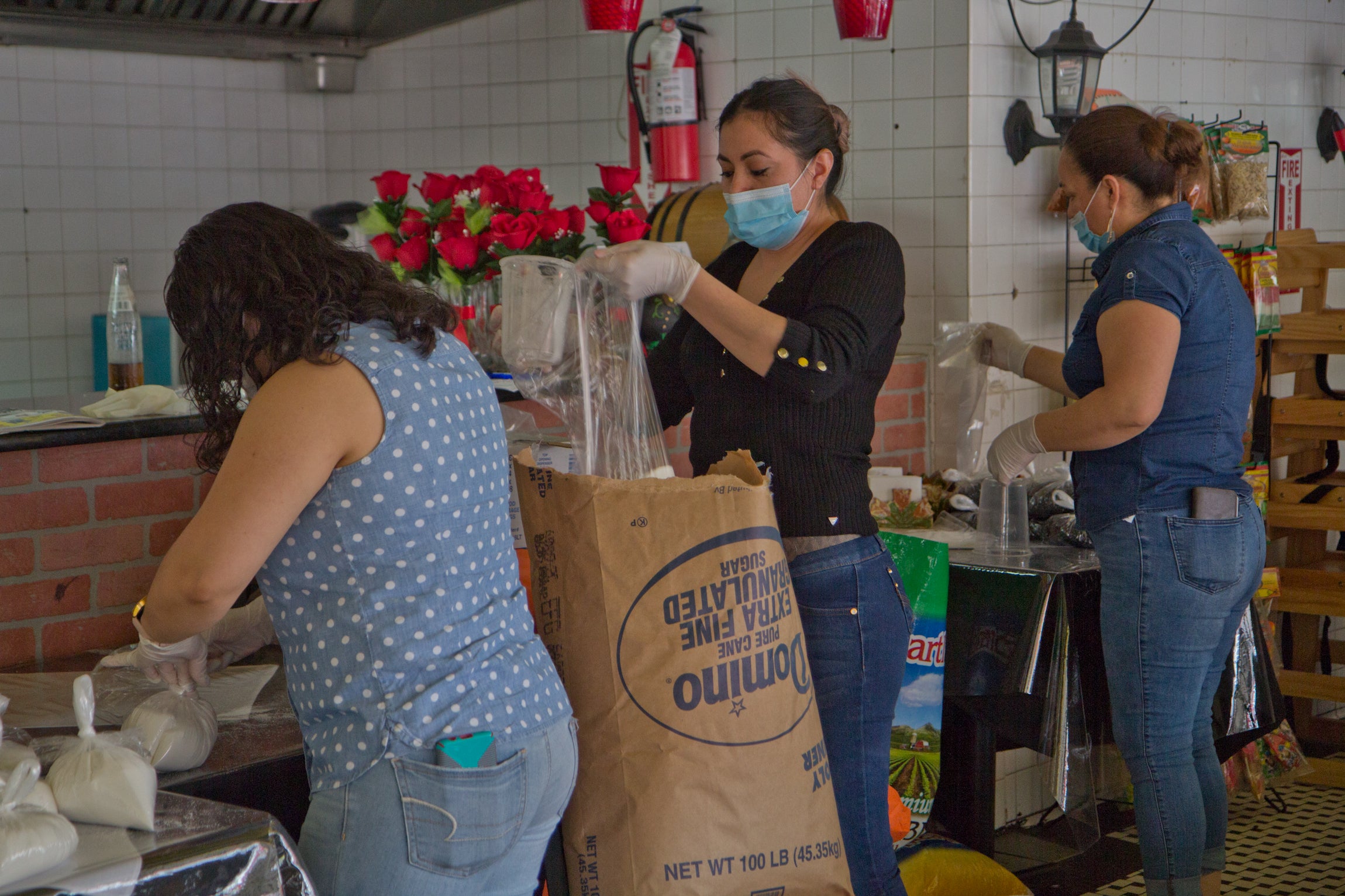
According to U.S. Census data compiled by the Pew Charitable Trusts, nearly 15% of Philadelphians were born outside the United States.
“There’s definitely a language barrier,” Diana Widjojo, whose family runs Hardena, an Indonesian restaurant also in South Philadelphia. Among the Indonesian diasporic community, information travels more informally and many “don’t really know how to get access to those [official] resources.”
That’s where community-driven efforts fill the void.
‘Harder than staying inside’
Seniors have been especially isolated by, and in some cases especially vulnerable to, the coronavirus pandemic.
Across town in northwest Philly’s East Oak Lane neighborhood, over 700 seniors of Asian descent rely on Penn Asian Senior Services, or PASSi, to provide medical care, recreational activities, and daily traditional Korean meals cooked in-house. But since coronavirus shut down senior centers across the city, many of PASSi’s members now struggle to fill the void.
The food, though, continues.
After PASSi suspended operations in mid-March, it came up with an idea to adapt. Now, its Kitchen Xpress hand-delivers freshly cooked Korean meals to over 200 of their neediest members in the area.
“They’ve been missing coming out to the center and coming out to the day program where they have their own friends. We can’t necessarily replace those full programs, but what we can start with is the food,” said Ken Yang, managing director of PASSi. “Perhaps it’s true for all of us that during these difficult times, our palates turn to those foods we’re most comfortable with and that we grew up with.”
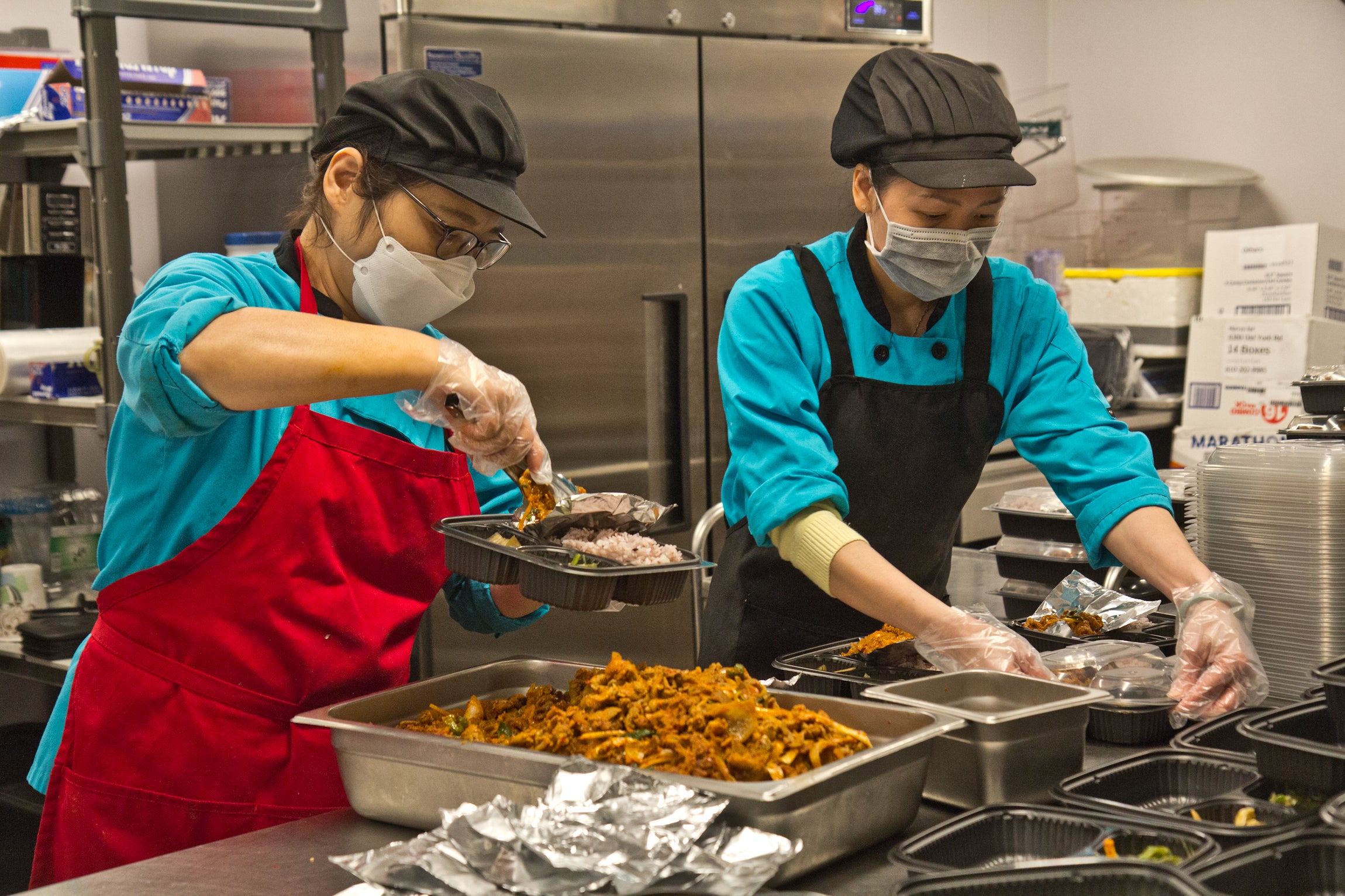
They began delivering meals to members every few days starting in April, but due to increased demand, PASSi has now expanded the program to daily deliveries.
PASSi pays for and delivers the boxes themselves, and has applied for grant funding to expand the service to all Philadelphians over 60.
Insook Seol, director of the Penn Asian Evergreen Center, says members aren’t used to eating American food, and the older generation especially needs the cuisine they’re used to in order to feel comfortable.
“They really love to eat their own tastes. Korean food is very unique,” she said. “For Koreans, not having Korean food is harder than staying inside.”
Seol recently delivered meals to members at the Philip Murray House, a senior living provider in West Oak Lane.
She struggled to lug a box packed with meals onto a small elevator with squeaky motors. After knocking on one door, one of her members opened, excited to see a friendly face with familiar fare.

WHYY is one of over 20 news organizations producing Broke in Philly, a collaborative reporting project on solutions to poverty and the city’s push towards economic justice. Follow us at @BrokeInPhilly.
WHYY is your source for fact-based, in-depth journalism and information. As a nonprofit organization, we rely on financial support from readers like you. Please give today.




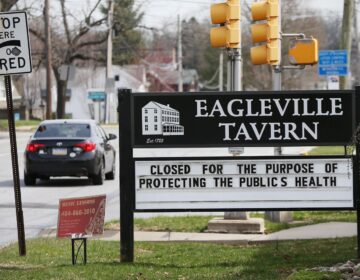
![CoronavirusPandemic_1024x512[1]](https://whyy.org/wp-content/uploads/2020/03/CoronavirusPandemic_1024x5121-300x150.jpg)
